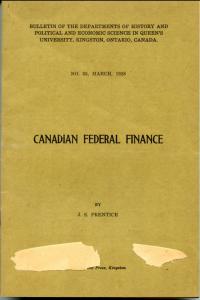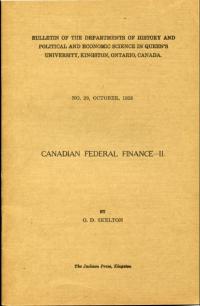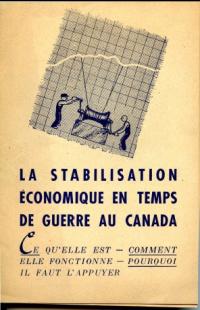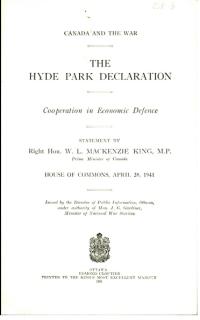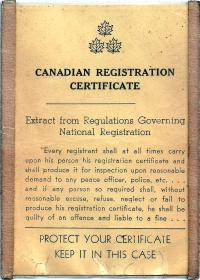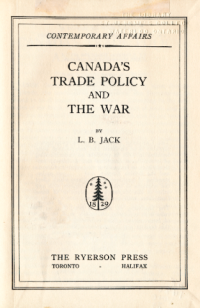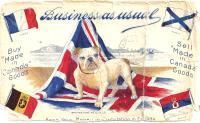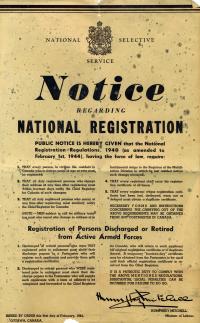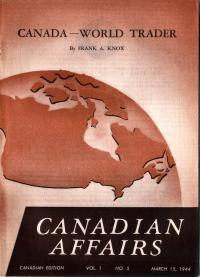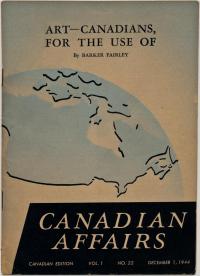Economy and Trade
Canadian Federal Finance
This booklet, in many ways a response to an earlier work published by O.D. Skelton under the same name, examines war finance within the broader period of 1913 to 1926, to provide a "correct" perspective on postwar finance.
Canadian Federal Finance
In this booklet, O.D. Skelton writes of Canada's financial situation resulting from the war effort of the previous four years. He emphasizes the need for economic vigilance on the part of all Canadians.
Economic Stabilization in Wartime
The later war years witnessed a marked rise in the cost of living. This booklet addresses different means of stabilizing the wartime economy, and outlines the various reasons for and means of counteracting inflation.
The Hyde Park Declaration - Statement by William Lyon Mackenzie King
The Hyde Park Declaration of 1941 detailed an agreement between the United States and Canada to allow American-produced war materials made in Canada, for Britain, to be included in the Lend-Lease agreement. The United States, still neutral at the time, had passed legislation allowing for the production of war materials for the Allied countries, with payment to be made at a later date. The King government feared this would divert British orders in Canada to the United States, so Roosevelt and King devised the Hyde Park Declaration as a means to alleviate this concern.
Identification, please !
For many Canadians, the wartime requirement to carry identification at all times was a novelty. Folders like this one were widely distributed as a reminder that they might be asked to produce a registration certificate at any time.
Canada's Trade Policy and the War
Canada's wartime economy relied heavily on foreign trade. This pamphlet outlines Canada's trade policy procedures with emphasis on the import and export of commodities.
Buy Canadian
This handbill, which bears a 1918 postmark from Maple Creek, Saskatchewan, reminded people of the need to buy Canadian-made products, to offset the amount of money being spent purchasing foreign-made munitions and war materials.
Mobilizing human resources
The requirement to register with the federal government became law in 1940, and by 1944 had been expanded to apply to every Canadian over the age of sixteen.
Trading with the world
The author, a First World War veteran and professor of economics at Queen's University, discusses the importance of international trade to Canada's prosperity.
Art in wartime - and after
Various Canadian artists argue for the entertainment, cultural, and spiritual value of designers and performers during wartime and peacetime.

